What to Avoid When Buying Reishi Mushroom Extracts
While there are numerous high-quality Reishi mushroom supplements available, the market is also flooded with inferior or misleading products. Choosing the right supplement involves not just knowing what to look for—but also what to avoid.
Here’s a detailed guide to common pitfalls and red flags when selecting Reishi mushroom extracts.
1. Products Without Species Identification
A lack of specific scientific naming is an immediate red flag.
Generic Labels: Beware of labels that simply say “mushroom extract” or “Reishi” without specifying Ganoderma Lucidum Extract Powder.
No Latin Name: The absence of “Ganoderma lucidum” likely means the product may not be genuine Reishi.
Mislabeled Species: Some products contain other mushroom types but falsely market themselves as Reishi.
2. Non-Organic or Uncertified Sources
Without organic certification, there’s no guarantee of safety or sustainability.
No USDA Certification: Products not labeled as USDA Certified Organic Mushroom Powder may contain pesticides or heavy metals.
Non-Transparent Origins: If the supplier doesn’t reveal the mushroom’s cultivation source, be cautious.
No Lab Testing: Lack of third-party testing is a major red flag for contamination risk.
3. Suspiciously Low Prices
Bargain products are rarely a good investment for your health.
Low Cost Equals Low Potency: Cheap products often contain high ratios of grain filler or starch.
Diluted Powders: You may find 5:1 labeled products that are actually only 1:1 once tested.
No Active Ingredient Declaration: Reputable products, like Organic Red Reishi Mushroom Supplement, specify levels of polysaccharides and triterpenes.
4. Unclear Extraction Methods
A premium extract will proudly declare its processing methods.
No Mention of Extraction: If a product doesn’t state how it was extracted, it’s likely a crude powder rather than an effective supplement.
Hot Water Only: While traditional, this method may miss crucial compounds unless combined with alcohol extraction.
Overprocessed or Burnt Extracts: Poor extraction leads to nutrient loss, affecting benefits and safety.
5. Visual and Sensory Clues
Your eyes and nose can detect low-quality or adulterated products.
Off-Color Powders: Gray or overly light powders suggest heavy filler content.
Sweet or Artificial Smell: Authentic Reishi Mushroom Organic Powder has an earthy, slightly bitter scent.
Clumping: Improperly dried powders retain moisture and can breed mold.
Reishi Mushroom Organic Powder, Ganoderma Lucidum Extract Powder, USDA Certified Organic Mushroom Powder, Organic Red Reishi Mushroom Supplement, Low-Quality Reishi Powder, Reishi Without Certification, Fake Mushroom Supplements, Adulterated Reishi Extracts, Cheap Reishi Powder Risks, Non-Genuine Ganoderma Lucidum, Reishi Product Red Flags, Unsafe Reishi Mushroom Extract, Contaminated Mushroom Supplements, Poorly Extracted Reishi, Filler-Heavy Mushroom Powder, Inactive Reishi Products, Unverified Mushroom Sources, Mislabeled Mushroom Extracts, Lack of Reishi Testing, No USDA Certification, Dangerous Supplement Additives, Unknown Reishi Origins, Bad Reishi Smell, Fake Organic Reishi, Reishi with Starch Fillers, Low Bioactive Reishi, Unlabeled Extraction Process, Questionable Reishi Supplement, Cheap Reishi Capsules, Non-Lab-Tested Reishi, Incomplete Reishi Labeling, Powdered Fillers in Supplements, Ineffective Mushroom Supplements, Dirty Reishi Production, Non-Earthy Reishi Flavor, Reishi with Unknown Species, Mushroom Product Scams, Subpar Reishi Suppliers, Poor Quality Reishi Indicators, Reishi That Doesn’t Work
READ MORE:
Hangzhou Molai Biotech Co., Ltd has supply capacity 1200+ tons per year for mushroom powders and extracts, including the mushroom mycelium from modern technology of Deeply Liquid Fermentation and fruiting bodies from the grown real mushrooms to meet the different markets.
Hangzhou Molai Biotech Co., Ltd supplies the products both in Powders and Extracts for commercial using worldwidely, such as Cordyceps Sinensis, Cordyceps Militaris, Maitake Mushroom, Lion’s Mane Mushroom, Turkey Tail Mushroom, Reishi Mushroom, Chaga Mushroom etc.
We offer OEM and ODM services, could extract the products according to your special requirements, process the powders/extracts into Capsules, Tablets, Small Bags, Mushroom Bars, Mushroom Coffee etc.
Organic Lion's Mane Mushroom Extract
Organic Reishi Mushroom Extract
Organic Cordyceps Militaris Extract
Organic Turkey Tail Mushroom Extract
Organic Chaga Mushroom Extract
Organic Shiitake Mushroom Extract
Organic Maitake Mushroom Extract
Organic Tremella Mushroom Extract

_90pQxc.jpg)




